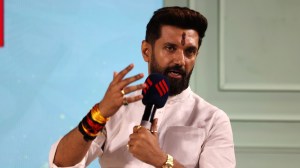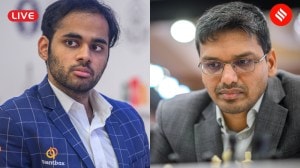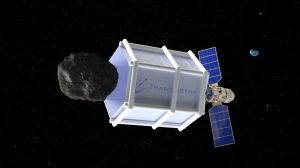India, Russia embark on historic strategic partnership
New Delhi, Oct 3: India and Russia today embarked on a historic strategic partnership in nuclear, defence and economic fields and resolved...

New Delhi, Oct 3: India and Russia today embarked on a historic strategic partnership in nuclear, defence and economic fields and resolved to jointly cooperate in combating international terrorism and religious extremism.
The five-page Declaration on Strategic Partnership, signed by visiting Russian President Vladimir Putin and Prime Minister Atal Behari Vajpayee here, envisages elevation of bilateral and multi-faceted ties to an "even higher and qualitatively new level."
The declaration also made it clear that "the strategic partnership is not directed against any other state or group of states."
While asserting that the Declaration does not seek to create a "military-political alliance," the two sides agreed to intensify efforts on complete disarmament, closely cooperate at the United Nations and launch joint initiatives on key international and regional issues.
In the field of defence, the two countries decided to consolidate military-technical cooperation in a long-term perspective and deepen service-to-service cooperation.
The two sides also signed 11 bilateral agreements for cooperation in science and technology, agriculture, postal services, processing and trade of rough natural diamonds and precious metals and oil and gas exploration in block of eastern coast in India. The two sides also signed a treaty on mutual legal assistance in civil and criminal matters.
Addressing a joint press conference with the Russian leader after their talks, Vajpayee said the historic Declaration was a firm and long term commitment to further strengthen bilateral ties and not directed against any third country.
Describing his one-to-one talks with Vajpayee which were allowed at the delegation level parleys as "extremely important," Putin said these had brought "exceptional results."
"The talks have shown that the long-term national and geopolitical interests of India and Russia coincide," Putin, on his first visit to India as President, said.
On Indo-Pak ties, the Russian leader hoped that concretea nd specific efforts would be made for renewal of the process of negotiations between New Delhi and Islamabad to bring down political and military tensions in the region.
Responding to questions, both Vajpayee and Putin said that it has been agreed to evolve a common strategy to deal with the problems in Taliban-controlled Afghanistan and bring peace to the war-torn region.
Vajpayee said the two sides had agreed to convene annual summit-level meetings. He had accepted Putin’s invitation to visit Russia at a mutually convenient date.
Earlier, Putin, leading a 70-member delegation, was given a ceremonial reception at Rashtrapati Bhavan by President K R Narayanan, Vajpayee and his Cabinet colleagues.
Putin will address the joint sitting of Parliament tomorrow before leaving for Agra. The same evening he will fly to Mumbai for an interaction with the Indian business community.
Later, briefing newspersons on the outcome of the Vajpayee-Putin parleys, Prime Minister’s Principal Secretary Brajesh Mishra said an Indo-Russian Joint Working Group (JWG) was being set up to have intensive discussions on the developments in Afghanistan.
"We have convergence of views on the geo-strategic situation including the developments in Afghanistan," he said.
Asked about reports of Moscow’s efforts at forging closer ties with Islamabad, Mishra said Russia had assured India that its policy towards Pakistan would not be to the detriment of New Delhi’s interest.
On Indo-Russian defence cooperation, he said negotiations were under way for purchase of aircraft carrier "Admiral Gorshkov", and advanced T-90 tanks besides licenced production of SU-30 combat aircraft in India. The proposed accord on military-technical cooperation has "enough scope" for defence purchases, he said.
Responding to questions, Mishra said there was "hardly" any discussion on the Comprehensive Test Ban Treaty and that the non-proliferation issue figured in the parleys in a "very peripheral" way.
He replied in the negative when asked whether the Kashmir issue came up during the talks.
Asked whether there was any distinction between the Indo-Soviet agreement of 1971 and the Declaration of Strategic Partnership, Mishra said the present accord reflected new realities in the post-cold war era.
To another query, he said the Indo-Russian Declaration did not bar New Delhi from entering into such an accord with a third country.
Asked whether there had been any discussion on a strategic alliance’ among Russia, India and China, he said the issue did not figure in the parleys.
Mishra said Putin also briefed Vajpayee on the situation in Yugoslavia.
Putin to visit BARC, meet industrialists
Mumbai: Putin, who arrives here tomorrow, is scheduled to address captains of industry and the scientific fraternity here during his 22-hour visit to the commercial capital of the country.
He would address leading industrialists of the country on October five at 10 am at Hotel Oberoi. Putin would later address the scientific community at the Central Complex Auditorium of Bhabha Atomic Research Centre here at 1.05 pm. Putin, the first Russian President to visit the Indian Atomic Energy establishment since its inception, will also visit the research reactor Dhruva.


- 01
- 02
- 03
- 04
- 05




























